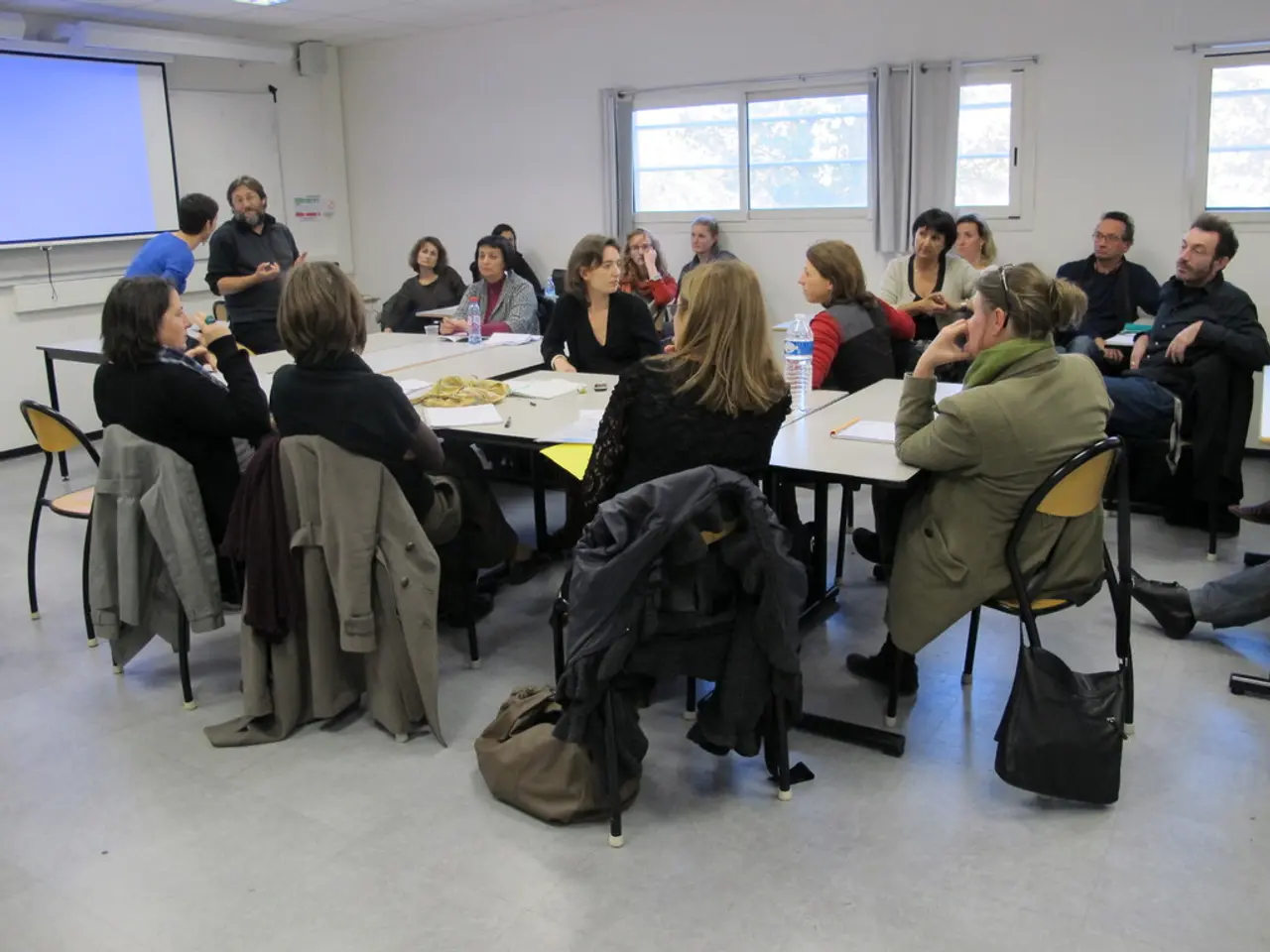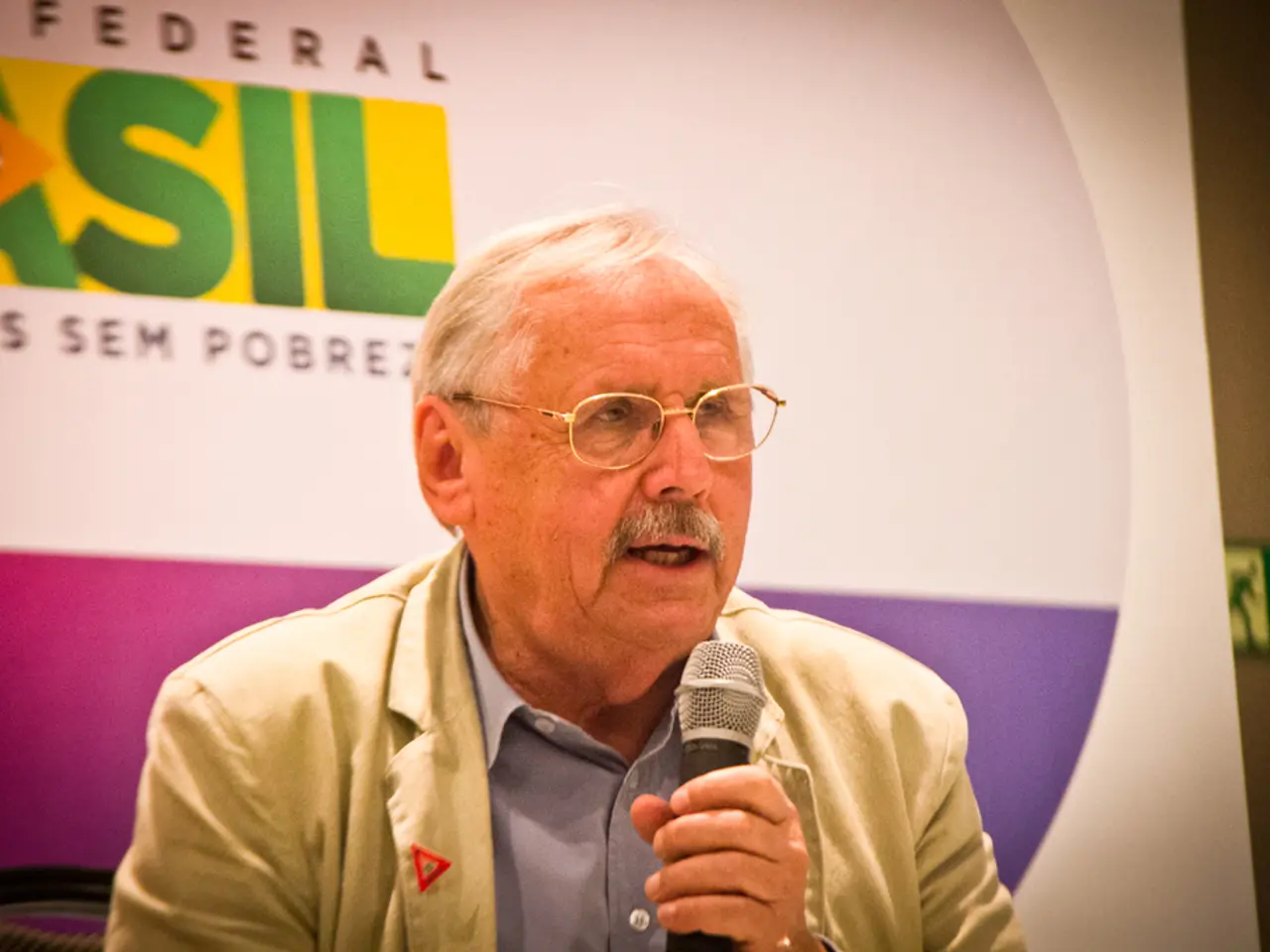Hamas's proposed truce terms, as per Netanyahu, are unacceptable
In the ongoing conflict between Israel and Hamas in the Gaza Strip, a new ceasefire proposal has emerged, setting the stage for a potential end to the 21-month long battle. However, key differences between the parties are threatening to derail the peace process.
According to Hamas' demands, the United Nations should resume control of the humanitarian aid delivery system in Gaza, replacing the current Israel and U.S.-backed Gaza Humanitarian Fund. Hamas insists that this fund must not be part of the aid distribution mechanism during the ceasefire. Additionally, Hamas requires the Israel Defense Forces (IDF) to withdraw to the boundaries they held before the ceasefire collapsed in March.
Indirect talks, mediated by the U.S., Qatar, and Egypt, are expected to cover the release of hostages and prisoners and the reopening of Gaza's Rafah crossing to allow evacuation of the wounded. However, Israel has refused Hamas's demands regarding the UN running the aid delivery system and the IDF's withdrawal to pre-March boundaries.
The current ceasefire proposal aims for a 60-day truce during which Israel and Hamas would engage in indirect negotiations to work towards a permanent end to the war. These mediators are also committed to potentially extending the ceasefire beyond 60 days if necessary to finalize negotiations.
Thousands of people in Tel Aviv and other Israeli cities are demanding the release of all hostages still held by Islamists in the Gaza Strip. Maccabit Meyer, aunt of two twin brothers held by Hamas, called for a deal that saves everyone at a demonstration in Tel Aviv.
The latest proposal for a deal provides for the release of only ten of the 20 hostages presumed alive in exchange for Palestinian prisoners. The Israeli Prime Minister, Benjamin Netanyahu, has accepted the invitation for indirect negotiations and is reportedly due to meet Trump at the White House on Monday. A delegation from Israel will depart for Doha, Qatar, today.
While Hamas has given a generally positive response to the ceasefire proposal, Israel remains firm against some of Hamas's core demands involving the terms of humanitarian aid management and military positioning. The resumption of indirect talks, with Qatar, Egypt, and the USA serving as mediators, is an important step towards a possible ceasefire in the conflict. The remaining live hostages may have a chance of ending their ordeal if Israel and Hamas agree on a permanent cessation of the war.
- Amidst the ongoing negotiations for a ceasefire between Israel and Hamas, one of the main points of disagreement lies in Hamas's demand for the United Nations to replace the current Gaza Humanitarian Fund in the management of humanitarian aid, a proposal met with resistance by Israel.
- As the indirect peace talks progress, key general news items like the delivery of humanitarian aid and the release of hostages, including the twin brothers held by Hamas, are subjects of intense negotiations, while politics and war-and-conflicts continue to dominate the news cycle.





